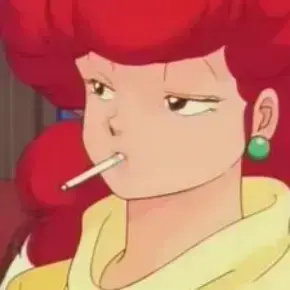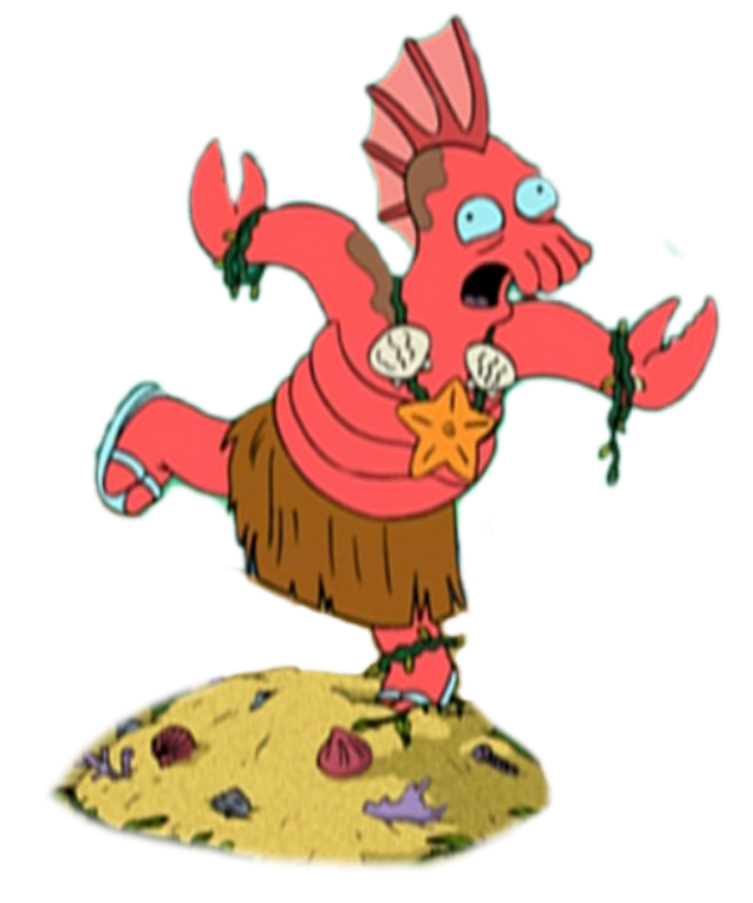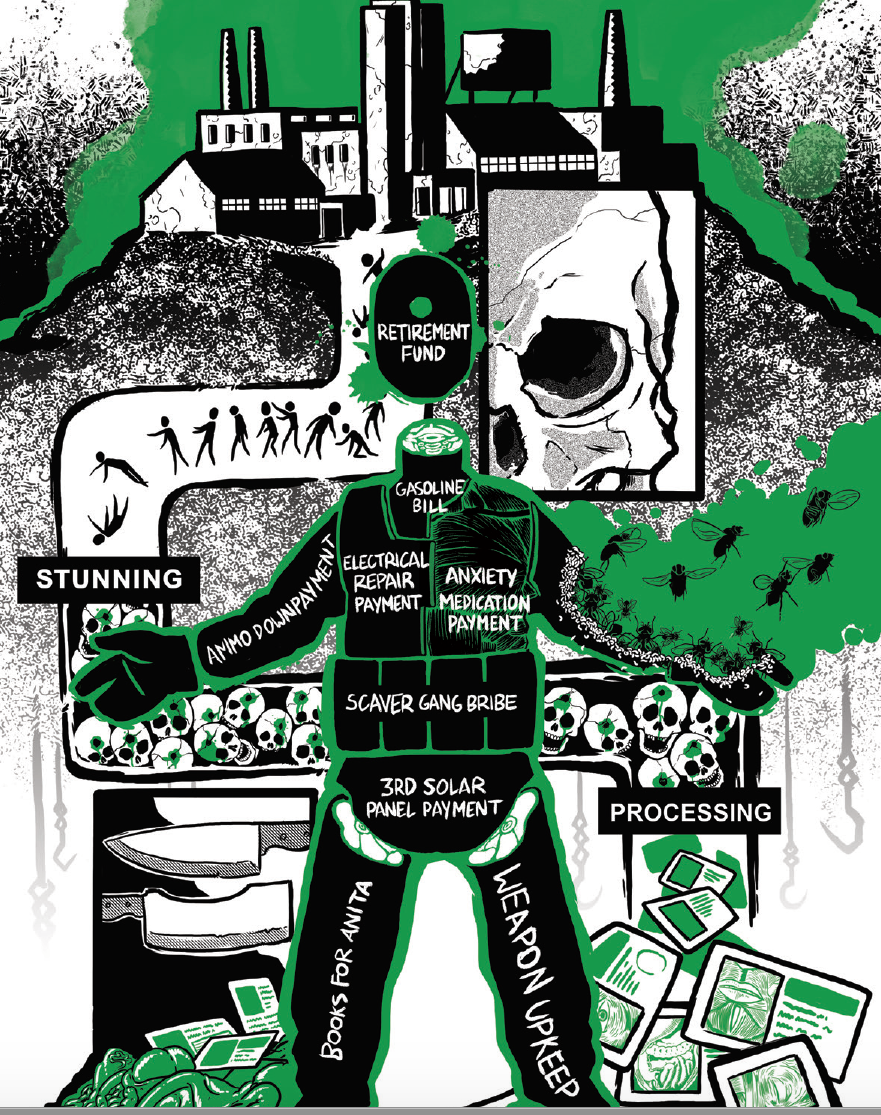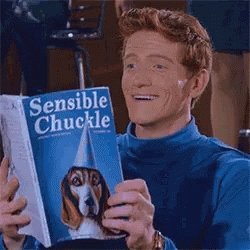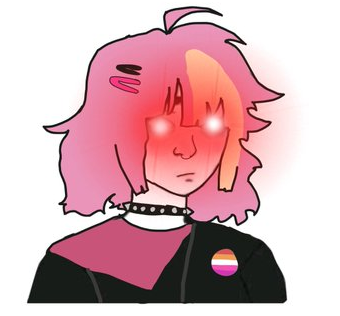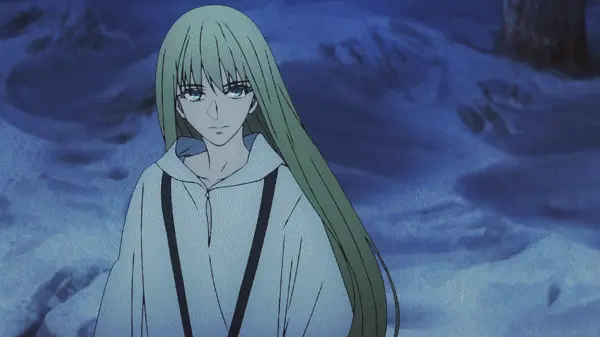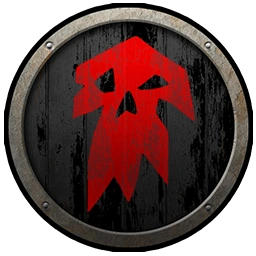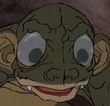How do I break out of those weird tropes but still write something with gnomes and shit? What does it look like when wizards control the means of production?
-
Not as much fantasy as you think is reactionary. Read a lot of the hits of the last decade or two. Fantasy authors are well aware of the old tropes of the genre and are more critical of them than anyone else. You're not the first would-be writer this thought has occurred to.
-
Human-only fantasy is the norm nowadays, with the classic fantasy species going to the wayside except in specifically meta works like LitRPG or deconstruction.
-
If you want to see how a communist writes multi-species fantasy, check out Perdido Street Station and its sequels by China Mieville. Not only politically good, but just absolutely fantastic books top to bottom.
-
In my book I'm working on, I'm approaching it like a work of history from below, so I'm exclusively writing from the perspective of normal, oppressed people. There are no rich people learning lessons or anyone with a secret royal birth; just a poor family trying to get by.
In my book I’m working on, I’m approaching it like a work of history from below, so I’m exclusively writing from the perspective of normal, oppressed people. There are no rich people learning lessons or anyone with a secret royal birth; just a poor family trying to get by.
This is a valuable tip. A lot of fantasy will fail this unintentionally and become pro-feudalism, even written by an author who is not a reactionary.
I can think of a good example of exactly this in an otherwise politically excellent and quite anticapitalist books I read this year, Foundryside by Robert Jackson Bennett. Light, early book spoilers below (they are really not significant spoilers):
spoiler
There are two primary perspective characters. One is a poor former slave just trying to get by. She rules. The other is a dude who's (somewhat) secretly the son of the wealthiest woman in the world, who is pulling all kinds of strings, and he's supposed to be the heir to her fortune and corporation, but he refuses. He's a good character, but I just had to wonder: why, in our tiny selection of protagonists, must one of them be so outrageously priviliged? It's a distraction from the point of the story.
Good book though, and I recommend it. That author's other work is good anti-imperialist fiction, but similarly, it's from the perspective of the imperialists, including some people of outrageously important birth.
Exactly. I do enjoy stories that follow lords and princes, but I hate hate hate the current trend of showing "good lords" by making the peasants dumb. The new lord shows up and uses his fancy knowledge to increase production 100%, yes this wealthy noble definitely knows more about land production than the people living on it.
I like noble characters since they're the ones who have armies in medieval-like fantasy, but the story should not go out of its way to justify feudalism. If your character is a lord and wants to be a good person, they should either have cognitive dissonance or want to reject the notion of lordship.
I've been working through Malazan for a while and while the characters represent a hodgepodge of ideologies and it's certainly not always written from the perspective of common folk, it does feel refreshingly grounded in not being "The Wheel of Time."
I'm interested in revolutionary fiction, trying not to be too on the nose about it but I'd definitely like to port some aspects of 1848 or 1917 to a different setting. I wrote a chunk of a sci-fi novel set in a (you guessed it) post-climate setting. Everything terraformed to Hell trying to cool the planet, concrete mining as basic subsistence, huge lighter-than-air tubes extending into the stratosphere pumping constant SO2 to keep up with a runaway greenhouse. Revolt was brewing, but ultimately though I got too down writing in that world, and I've never finished a book besides so it was time to move on.
Maybe a light Pratchett style world with very serious political movements is due? That let's me keep some classic tropes because of right of satire, then destroy them through a proletarian uprising.
Malazan is great, especially when you get to the America analog. Erikson is a vocal leftist and it shows.
For revolutionary fiction being "too on the nose": nonsense. The more on the nose your writing is, the better. Most political work cloaks itself in layer after layer of abstraction and metaphor, and everyone just ends up missing the point. In my book, the good guys are communists. The bad guys are cops and capitalists. Connecting it directly to the real world doesn't distract from the writing; it gives people context, grounds the story, and lets you spend more words on your characters and plots than world building that just recreates what people are already familiar with.
Yo I love this advice thanks, time for Shmoseph Shmalin to make his debut.
And I'm on Dust of Dreams right now - so good - this has been the best series I'm glad I didn't walk away from when the first book hit me like a wall.
No problem! I have a Shmarl Shmarx type person that's long dead as of the book taking place but it's pretty clear who they're supposed to be if you're familiar. I'll probably add in a Shmao Shmedong in my rewrites as well.
Also, I stopped Malazan during Toll the Hounds, but one day I'll get back to it.
So much this! I think the subtle form of implied ethics in a narrative has become subservient to aesthetics in so much literature and other popular media forms. This is why Parasite hit so hard for many people, it didn't concern itself much with trying to be so damn subtle about the message.
Wheel of Time isn't the worst (Sword of Truth has it beat on all counts), but it is still dreck that is heralded as great because people grew up reading them when the alternative was that or sword of truth.
I read the first few of those Goodkind books and goddamn they were dreadful. A friend insisted they were great, which is why I kept trying, but holy fuck they were so bad.
The main thing I know about the Wheel of Time is that it's super gender essentialist in a way that's impossible to ignore, which is enough to make me not want to read it.
Good call. I got into them before I developed any sort of analytical capacity to recognize horseshit, but I dropped off in the middle of the series because damn they were not very good and Robert Jordan was a clearly a very trad-horny man.
I developed any sort of analytical capacity to recognize horseshit
I still haven't haha and would love to know more of your thoughts on what makes the series bad if you don't mind.
If you want to see how a communist writes multi-species fantasy, check out Perdido Street Station and its sequels by China Mieville. Not only politically good, but just absolutely fantastic books top to bottom.
Seconded.
Perdido Street Station
I will definitely check this out. Trying to write a multi-species fantasy and you're absolutely right that they've fallen out of fashion these days.
-
Too much fantasy is concerned with the notion of "great men" in developing their worlds' histories. Focus on the lives of ordinary people, or gnomes or wizards, and don't humanize the Kings and Princes and whatnot too much.
The other thing Fantasy often fails at is changing institutions. These stories often climax with immense power struggles, massive pitched battles, etc - but despite the massive rifts which exist in these societies, the institutions barely seem to change beyond maybe a new dynasty taking power and perhaps being slightly less mean to the peasants.
Dumbledore is Marx, Harry is Lenin, Hermione is Rosa Luxemburg, Ron is Sankara, Neville is Kin Jong Un, Voldermort is Bezos.
Ban me.
What does it look like when wizards control the means of production?
You should read Joe Abercrombie first law trilogy and the follow ups for this exact thing.
Age of Madness has been great so far and I'm looking forward to the third book. A blurb on the premise
The new trilogy takes place about 28 years after the conclusion of Last Argument of Kings, or 15 years after Red Country. The Union has entered an Industrial Age, with chimneys rising all over Midderland, but that doesn't mean that the ancient powers have gone away, or that things have gotten any better. Gone are the days of the honest farmer making enough money to get by; here comes a glorious future, a future filled with machinery, a future where commerce means prosperity; but what happens when the poor and downtrodden workers are pushed to their limit?
Hopefully it sticks the landing.
'Perhaps we could make some gesture. A minimum wage? Improved working conditions? I heard a recent fire in a mill led to the deaths of fifteen child workers—
' It would be folly,' said Bayaz, his attention already back on the gardens, `to obstruct the free operation of the market.'
`The market serves the interests of all,' offered the lord chancellor. '
Unprecedented,' agreed the high justice. 'Prosperity.'
`No doubt the child workers would applaud it,' said Orso.
`No doubt,' agreed Lord Hoff.
`Had they not been burned to death.'
Pretty sure there's a video game out there where gnomes are basically oligarchal fascists that run all the businesses. You can do a quest where you discover they have a literal "rape island" where they bread half monsters for slave labor or something. If you try to report it to the new papers and shit nothing happens because those companies are owned by gnomes.
Games called Arcanum https://youtu.be/QXAPdwOza9U
This might be Arcanum? Specifically this quest (spoilers obviously): https://arcanum.fandom.com/wiki/The_Ren%27ar_Siamese_Twins
I think it's supposed to be kind of like an X-Files quest, where there isn't really a proper conclusion.
From what I remember lorewise (haven't played Arcanum in a while), the gnomes were major actors in the world's industrial revolution, and as such a lot of them are now rich magnates, bankers and the like. The breeding here was of half-ogres, with the implication being that human women were being forcefully impregnated. Another detail is that many prominent gnomes have half-ogre bodyguards, and the quest is supposed to make you question if this is actually some kind of top-secret bodyguard breeding program, to ensure wealthy gnomes have appropriate protection. But it's never conclusively stated - the ending is kind of like Eyes Wide Shut in a way.
The whole "gnomes are rich and greedy" thing might be interpreted as doing some anti-semitic tropes, but I guess if you wanted to be favourable you might say that this perception of gnomes is in-universe racism. The game definitely does stuff with that - orcs for example are used in Tarant as factory workers, but live in a ghetto and are generally marginalized, which eventually leads to the great newspaper headline "Anarchist Laborers Take Over Factory.".
I played so much of this, forgot to post it in the recent !games@hexbear.net thread about turn based rpgs
Oh played it, as kid, but didn't get that, cause I found it less cool than Planescape.
Post Tolkien fantasy really concentrate on different races of people. Orcs and elves are all kind of races. And pre Tolkein fantasy are often thinly veiled antisemitism. Shit like shapeshifting elves stealing babies putting imposters there.
There are really potent ideas and motifs in fantasy, and you could concentrate on those, and be aware of where some of the tropes come from so you can avoid or subvert them.
Fantasy tends to be pre capitalist, so it is difficult to make a socialist story. But maybe a story of wizard magic as a type of industrial revolution. And tell the Luddite objection to earning less while producing more. I dunno.Yo, you should make the wizards evil bourgie assholes and have the various fantasy peoples unite together, overthrow them and then have the story be about all these rad fantasy races establishing communism and building a new society together and trying to make it work.
Thinking Terry Pratchett + The Conditions of the Working Class in England = Fantasy Russian Revolution is a Good Book
I was always kind of partial to the Dark Sun D&D setting for this very reason.
I’ve been working on a fantasy novel over the last few months but ended up scrapping a lot of it due to running into a problem that I didn’t think too much about.
In my world there is a clear line drawn between the oppressed and the oppressor. There is a crumbling empire as the back drop of the entire thing that is kicking and screaming its way to death. There is no emperor and the empire itself is being ran by military factions. Fascism and nationalism runs amok as the military conscripts more and more soldiers for expansion, just to keep people loyal. This empire is getting dismantled piece by piece and I want to explore this concept as time moves on.
So where did my problem lie? I was humanizing the antagonists too much. I hope this doesn’t sound heartless and cruel but I was giving them too much humanity when the people of this empire give non to those they oppress. I was scared that I was going to shoo away “reasonable readers” and began to “both sides” the oppressed and the oppressors. I was going to attract reactionary readers as a result. (Just to be clear I’m probably overthinking everything lmao)
My solution last month was to go back to the drawing board and draw the lines in the sand even harder.A dying empire shows no mercy when dealing with its enemies and oppressed. They won’t be humanized as much as a result. However, I’ve written a character from said empire that will try to redeem himself on a very troubled path. I’ll be using him as a means to humanize something from the empire.
I guess my point is to be directly on the nose with your politics and you’ll be fine.
Sorry if my post seems incoherent, wasn’t really planning on writing about this early in the morning. Hope there is some insight somewhere in there lol
Reactionaries who'd read your book would sympathize with the empire no matter what. Our pop culture is full of fan favorites who are clearly characters you shouldn't sympathize with, from Eric Cartman to Zac Snyder's interpretation of Rorschach. If you'd like to have plausible villains with complex motivations, villains who are horrible human beings instead of one-dimensional monsters, i don't think you should ditch that just because it could be misunderstood. Somebody will always misunderstand your work, it's unavoidable.
Also, i think the best critique of a fascist empire is not to show it as a monstrous, superhuman threat (that's exactly how fascists want to be seen, they want people to be scared of them), but to expose how pompous, laughable and cringe nazis actually can be when they're not appearing in Star Wars or Indiana Jones.
Agreed, I tend to over react to weird things that I cling onto. I'm a pretty emotional writer so when the thought ran through my head, it stuck with me lol.
That's a really good point about critique of fascism. It's tough balancing an antagonistic entity like an empire and its people. Need to give them consequential weight in the story while showcasing just how pathetic their politics and violence truly occurs. I've been working on it. Your point definitely gave me more to think about.
It is pretty much true that most people are sympathetic characters from their own perspectives. They just patch over villainy and hypocrisy with ideology. Maybe more exploration of what ideological structures the antagonists are operating off of and showing the reader how they are hollow or self-serving?
Unfortunately in real life there seldom are super clean lines between classes like that. Sure, most people on either side are clearly on one or the other, but the lines themselves are blurry and diffuse. And there are “good people” on both sides, too.
Somehow, I know a lot of people that know a George W Bush personally (grew up in Raytheon Acres, VA) and they are always eager to jump to his defense because he’s such a “nice guy” in person. Well guess what, when a “nice guy” (btw I don’t actually think he’s a nice guy, he’s a gladhanding politician) is piloting an imperial death machine, it doesn’t matter how nice a guy he is, because the machine runs on blood.
Anyway, what I’m saying here is that it’s okay to humanize your antagonists. In the real world, all the villains are people too. Just make sure you illustrate what happens when a “good person” takes part in an evil imperial system.
I'm not going to sit here and write weird shit about refusing to humanize antagonists or anything like that. I generally hold the view that all people are redeemable in some fashion and deserve the opportunity to do so. Think I was just being a little edgy with my first comment lol my b
I just didn't want to fall into the camp of lending too much sympathetic language to this crumbling empire and the things that the people do to keep it held together. I just think there needs to be clear lines drawn when it comes to writing these things, especially in fantasy where truly wondrous things can occur and change the world on some grand scale.
I definitely agree with your last line. I'm really proud of this protagonist I wrote that comes from said empire and I wrote them specifically for this reason.
Well, I hope you finish the story, or others in the future, because I’d love to read it. :)
I think this is what's been bugging me about the Stormlight Archive books. I read the first two books back to back, so I can't say whether it gets better after that.
This is the one series I haven't really read. Something about it never really interested me much. I do know there is a lot of fucked up aristocracy involved. Again, just a surface understanding.
I once read a couple of strung together short stories on an old RPG board. Within them there was a cruel man who was feared and hated (rightfully in most PoV's). There however was also his PoV (which was only made clear later, how of course he is troubled but "economic anxiety" and it was also shown how others could NOT do as he did, thus it was made clear from all sides that he isn't a hero of his own story, but sucked (even though systemic pressures). Found that pretty well done. Also the scene where people would just watch him drown was kinda neat in terms of revenge (and a person who wanted to save him being put a hand of their shoulder by one of the tortured victims, to stop and not fetch him out).
I don't know how to carry this comparison over to the fantasy genre, but old sci-fi was also particularly bad about this for a very long while. You got contradictions like, "oh yeah, we live in this cool future space society but also women have their same gender roles because of something something natural hierarchy. I think it's a result of both the time that it was written and also that the overwhelmingly biggest demographic at the time (and probably still) was white young adults. Then along comes the New Wave era and authors start to explore societies not as they are, but how they ought to be. I'm not going to bat for all sci-fi here, but at least there's a specific event in its history that you can point to and see the genre's movement on issues of social justice. This is something that I think fantasy has never really grappled with, despite sharing demographics.
What I'm saying is that Star Trek is pretty much responsible for saving science-fiction from itself. I'm kind of joking, but it's hard to argue against the amount of impact it had in the genre because of its popularity. Fantasy hasn't done anything significant in that time besides Harry Potter and trying to rehash and sanitize Tolkien repeatedly. But I think that, despite itself, the fantasy genre as a whole is gonna be okay. Even D&D is trying to get away from the whole orcs=bad cliche.
Also Discworld is the best fantasy series BUT DON'T @ ME TO TELL ME WHY IT'S ACTUALLY PROBLEMATIC BECAUSE it will make me very sad
There was this one time that Terry Pratchett
spoiler
wrote some really good books and I enjoyed them very much. Mort and Going Postal are my favorites.
❤️
I still haven't brought myself to read The Shepherds Crown.
Maybe one day, but I don't want it to be over yet.
I stopped reading maybe 20 pages into the train one, it just clearly wasn't him any more and it felt somehow disrespectful to keep going
sad face
What does it look like when wizards control the means of production?
Depends on how magic works in your setting. Is magic something rare and special that some people are simply born with? Is it something everybody can learn? If it's an innate ability, are there wizard dynasties and do wizard eugenics work (a central contention in Harry Potter) or is it a completely random, unpredictable thing as in Shadowrun? If it's something everbody can learn in theory, how hard is that? Is it something everybody pulls off it they try, like learning to ride a bicycle, or is it something most people give up on, like learning to play the theremin? How long does it take to become an accomplished wizard, how many ressources does this require etc.? Does spellcasting itself require ressource expenditure, time investment, labor? Does magic come with a cost, such as draining your life force, fucking with your fate, spells backfiring in random and catastrophic ways or the spellcaster slowly turning into a monster? Does magic pollute the environment, as in Dark Sun, where everything is a post-apoc wasteland because wizard kings fucked up the climate?
The rest will more or less logically follow from such basic decisions. You could expect a world with functioning, powerful magic to be slower on many science-driven innovations when magic is the easier, cheaper, stronger alternative to just building a steam engine, up to and including a magical industrial revolution in an otherwise very backwards, very medieval setting. Or magic could be a niche thing, maybe something that's actively persecuted. Wizards could be the ruling class, or they could be an X-Men style feared and hated underclass.
Once you have your setting fleshed out, you can start doing historical materialism. Which classes would your setting logically have, what are their relations and antagonisms, which means do they have at their disposal to resolve these conflicts? Do you have pre-revolutionary conditions or is it an age of restauration? Is it one of these decades where nothing happens or a week were decades happen?
Would love an off-hand reference to Hogwarts as a eugenics center
Slytherins are pretty open about only accepting those of the purest blood. Says so right in the sorting hat poem. I mean, you could argue that's just general racism instead of being specifically eugenicist, and i couldn't really object to that, but race science almost inevitably leads to eugenicism and Slytherins clearly believe magical aptitude is tied to inborn traits, that your bloodline's magical aptitude is harmed by having kids with somebody outside of your in-group, and that their blood purity qualifies them to rule. It's why Sirius Black's family is so obsessed with their heritage that they decorate their residence with a giant, animated family tree. And as soon as the Death Eaters take power, they start imprisoning muggle-born wizards, and this is justified with m*dbloods being bad for the wizard gene pool.
Hnnnnng, Ms Tubman, I'm trying to raid Harper's Ferry, but I'm so dummy thicc that my ass cheeks keep clapping when I walk and alerting the guards.
🎶John Brown's booty lies a 'mouldering in the grave
But its spirit goes clapping on🎶I can see, from lack of upbears, that this is not a well received bit, most likely because it comes across as disrespectful, even though that's not the intention.
However, the idea of John Brown only failing because he was thicc AF greatly amuses me, so I'm leaving the comments up.
Back in the sub, I'd just vomit out my mind through my fingers, but now I'm getting all self conscious and worried that my bits will be taken the wrong way that I'm kinda ruining them by explaining or apologizing.
:sadness:
Read Epic Pooh essay by Michael Moorcock which is an analysis of how much of contemporary fantasy was reactionary and boring.
你个狗屁 白痴 肏你妈的屄 你二大爷的 蠢豬 你应该为自己感到羞耻 笨蛋Simpleton 废话 蠢蛋Fool 二百五 人渣 处男Virgin 沒用 肏你妈Fuck your Mother 请删除您的帐户Delete your Account 生舊叉燒都好過生你! Racist智障呀 大脑进水 去吃大便Eat Shit 傻瓜 傻子 废人 废物 孬种 无用 饭桶 去下地狱 放你妈的屁 你在讲什么屁话Get this bullshit out of here
What does it look like when wizards control the means of production
that's called the Tevinter Imperium and it's bad
Even before JK Rowling revealed herself as a Torie TERF, her books were still just liberalism but with wizards.
don't fool yourself, the bourgeoisie still run the Arry Otter universe
Cuz the tropes of the genre originated from two old British dudes who had a fetishized version of Medieval Europe. Even progressive fantasy authors fall on using these tropes, the clever ones work around or with them in smart ways sometimes, but it’s also easy just to fall back on them sometimes when you just want to write up some literary junk food.
The Last Ringbearer is kinda about (non marxist) wizards controlling means of production.
Shame it’s so poorly written (or poorly translated?) I really wanted to like it.

